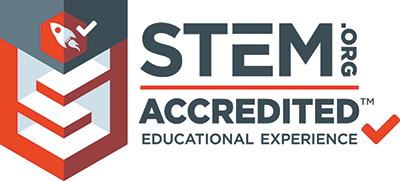
SCAT Vocabulary Test Prep For SCAT Verbal Ability Section
eTutorWorld offers SCAT Test Prep specifically for the Verbal Ability Section.
Through the program, expert tutors help to strengthen your child’s vocabulary for better SCAT results.
Let your child learn everything about the root of the words, prefixes, suffixes, and more.
Click the button below and schedule a FREE session with one of our private tutors.
SCAT Vocabulary
Vocabulary is an important and focused area to be considered if you are attempting questions from the verbal ability section of SCAT. Often, we feel frustrated for not getting the right word when required. Standardized tests like SCAT assess a student’s ability to employ the right word according to the usage of its context. Let’s look at the right strategies that will help us understand the art & excitement of learning words instead of making it a monotonous task.
SCAT Test – Understanding The Analogies
A. Root Words
English is one language that has welcomed the maximum number of words from its ancestors generally from Latin and Greek. Root words help us understand the root or origin of a specific word. If we are -aware of the root of a word, we can easily make an educated guess about its meaning. For example, the root word EGO means ‘I’ and can be used in a multitude of words like ‘egoistic’ (caring only about yourself) or ‘egotism’ (exaggerated opinion about yourself).
B. Suffix and Prefix
Suffixes and prefixes are words that are put at the end and beginning of the words to form a new word. If you are aware of the functionality of a suffix or prefix, you can easily guess the meaning of the word. For example, let’s use the prefix ‘mis’ meaning bad, and the suffix ‘able’ in the given example:
- Mis (prefix) + aligned (standard word) = misaligned (aligned imperfectly)
- Reason (standard word) + able (suffix) = reasonable (showing reason or sound judgement)
C. Reading
Vocabulary is endless and reading can help you become familiar with new words. It is advised that one should read from a wide variety of sources like newspapers, books, online articles, and other important literary words. Don’t try to find the meaning of a word by referring to the dictionary every time. Instead, try to make a meaningful guess of the specific word by relating it to the given context. Note down the important words in a separate notebook to keep track of your progress while you memorize them.
D. Collocations
A collocation is a set of two or three words that are always put together when used in any context. Learning words in groups or combinations gets easier for your memory to recall the lump of words than individual words.
For example:
- Living a cat and dog life – a life full of arguments
- Rained cats and dogs – to downpour heavily
E. Synonyms
Most of the words in English have a list of words that are similar in meanings called synonyms. You can memorize the synonyms of each word in the group so that you can use any of them as a substitute if required.
F. Vocabulary Apps
Make the best use of technology and apps to get ahead to pick up vocabulary used in everyday situations. There are various apps available that can help you with creating your own list of words and would get re-arranged automatically as per your progress.
Maintain a healthy relationship with words and get along with them for not less than 30 minutes of your day. Make a routine and strictly follow it with full enthusiasm and dedication. Be patient and do not torture your brain by cramming words but give it a good workout for its healthy working.
Find out how eTutorWorld can help you improve your Grades.
No credit card is required, nor are you under any obligation to make a purchase. Just schedule the FREE TRIAL lesson to meet a tutor & get help on any topic you want!
Online Tutoring and Worksheets Pricing
Our Learning by Design methodology focuses exclusively on individual students.
Our expert tutors are specially trained to identify and diagnose the needs and skills of each student and plan future tutoring lessons accordingly.
Know more about our Personalised Online Tutoring Packs.
IN THE NEWS

Our mission is to provide high quality online tutoring services, using state of the art Internet technology, to school students worldwide.
Online test prep and practice
SCAT
CogAT
SSAT
ISEE
PSAT
SAT
ACT
AP Exam
Science Tutoring
Physics Tutoring
Chemistry Tutoring
Biology Tutoring
Math Tutoring
Pre-Algebra Tutoring
Algebra Tutoring
Pre Calculus Tutoring
Calculus Tutoring
Geometry Tutoring
Trigonometry Tutoring
Statistics Tutoring
Quick links
Free Worksheets
Fact sheet
Sales Partner Opportunities
Parents
Passive Fundraising
Virtual Fundraising
Our Expert Tutors
Safe and Secure Tutoring
Interactive Online Tutoring
After School Tutoring
Elementary School Tutoring
Middle School Tutoring
High School Tutoring
Home Work Help
Math Tutors New York City
Press
©2022 eTutorWorld Terms of use Privacy Policy Site by Little Red Bird
©2022 eTutorWorld
Terms of use
Privacy Policy
Site by Little Red Bird







